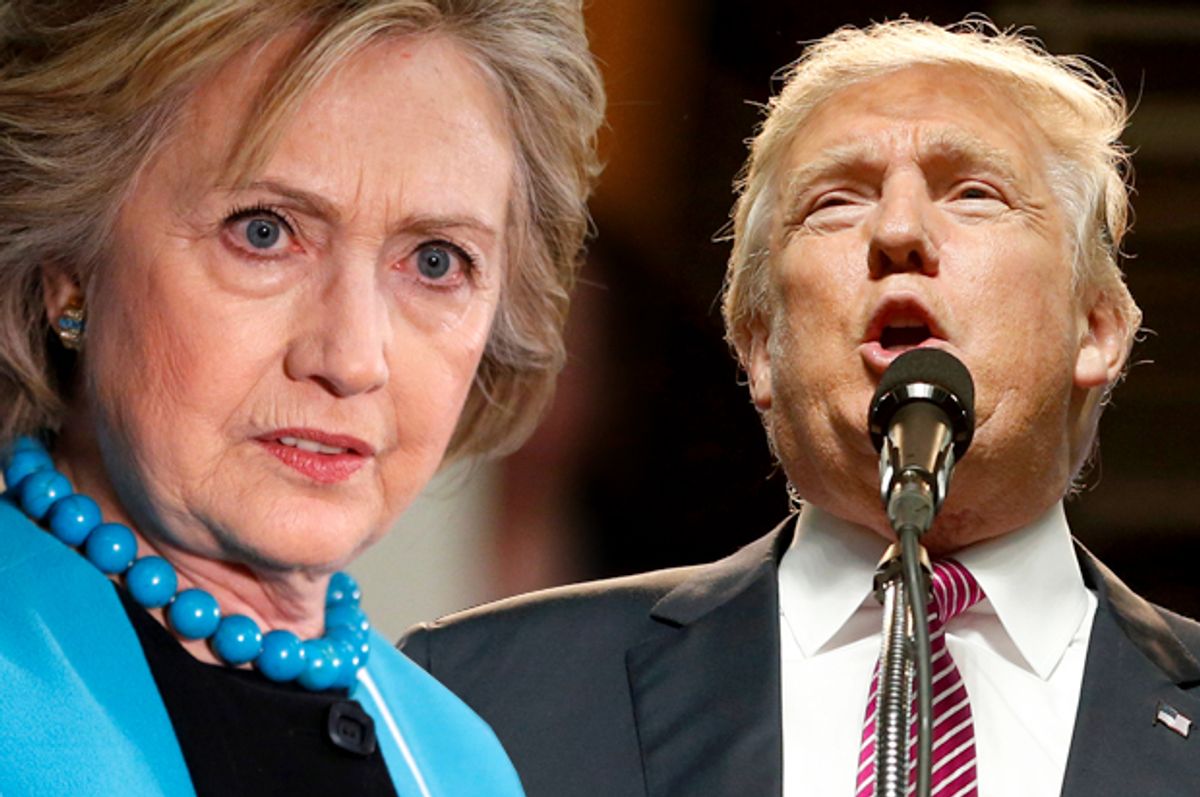One of the more frustrating aspects of Hillary Clinton is her conventionality. She's been in the political cross-hairs of Republicans for decades, and the result is a candidate who clings obsessively to the script. She avoids any situation that might produce an unengineered moment. That's often smart politics, but the play-it-safe approach won't work this year.
Donald Trump is nothing if not unconventional. All the fact-checkers and policy papers in the world are futile against him. Trump wins because he knows how to work the media. He's done this masterfully since launching his campaign last year. His omnipresence on television and radio during the primaries is the reason he dominated the primaries.
Trump's attention-mongering will put Clinton – and the television news industry – in a difficult position this fall. For all the talk of fairness and balance, the media has but one imperative: ratings. Trump understands this and uses it to his advantage. As Michael M. Grynbaum noted in The New York Times, Trump's cardinal focus is remaining a “daily fixture on influential programs,” particularly television programs. This is how he courts controversy and steers the conversation.
Clinton, however, takes a different approach. She isn't “absent from cable news,” Grynbaum writes, “but she remains leery of TV's unscripted nature, appearing far less often than Trump and irking some bookers who complain about the difficulties of luring her on air.” As a consequence, Trump will be seen and heard much more than Clinton. This asymmetry could be uniquely consequential this year, given the success of Trump's media-centric strategy.
So far it appears the Clinton campaign is content to attack Trump the way'd they'd attack any other candidate. We've heard constantly from surrogates and spokespeople, all of whom parrot their talking points with perfect discipline. But Trump isn't like any other candidate, and exposing his vacuousness won't move the meter. Clinton will have to try something different.
There won't be anything like balanced coverage this year. No prominent program will turn down an interview with Trump, and Trump won't turn down an interview with a prominent program. Unleashing staffers and surrogates to do her bidding is an ineffective counter to Trump's media blitz. The only thing Trump has is the spotlight. Clinton has to be willing to steal it, regardless of the risks involved.
Clinton has to define herself as a candidate, and that means more appearances and a fearless posture. Exchanging insults with Trump is a fruitless endeavor, but competing with him for airtime is not. Remaining sheltered is a terrible strategy in this climate. In addition to saying outrageous things, Trump commands attention because he's unafraid to tangle with reporters. He uses these opportunities to drive the news cycle, giving the press just enough meat to chew on. There's a lesson in this for Clinton, if she's willing to take it.
Ultimately, Clinton and the Democrats can't rely on the press to fulfill its social obligation. Corporate media will follow the ratings straight to hell if that's where it leads. There is no higher responsibility at work here. They'll offer a platform to both candidates, but that's all they'll do. If Clinton prefers to mitigate risk, Trump will happily fill the void. And there's no real downside for Trump. He pays no price among his supporters for lying and distorting and exaggerating; it's dismissed as political incorrectness. But the unearned media attention he receives in the process propels his campaign.
This means Clinton has no choice but to put herself out there. Ceding the airtime battle to Trump puts Clinton at a comparative disadvantage. It amounts to abandoning any control over the narrative or the terms of the debate. More exposure means more errors, but that's a price Clinton has to accept. We've seen already how dangerous it is to allow Trump to suck all the oxygen out of the room. There's a graveyard of Republican candidates who learned that lesson the hard way.

Shares